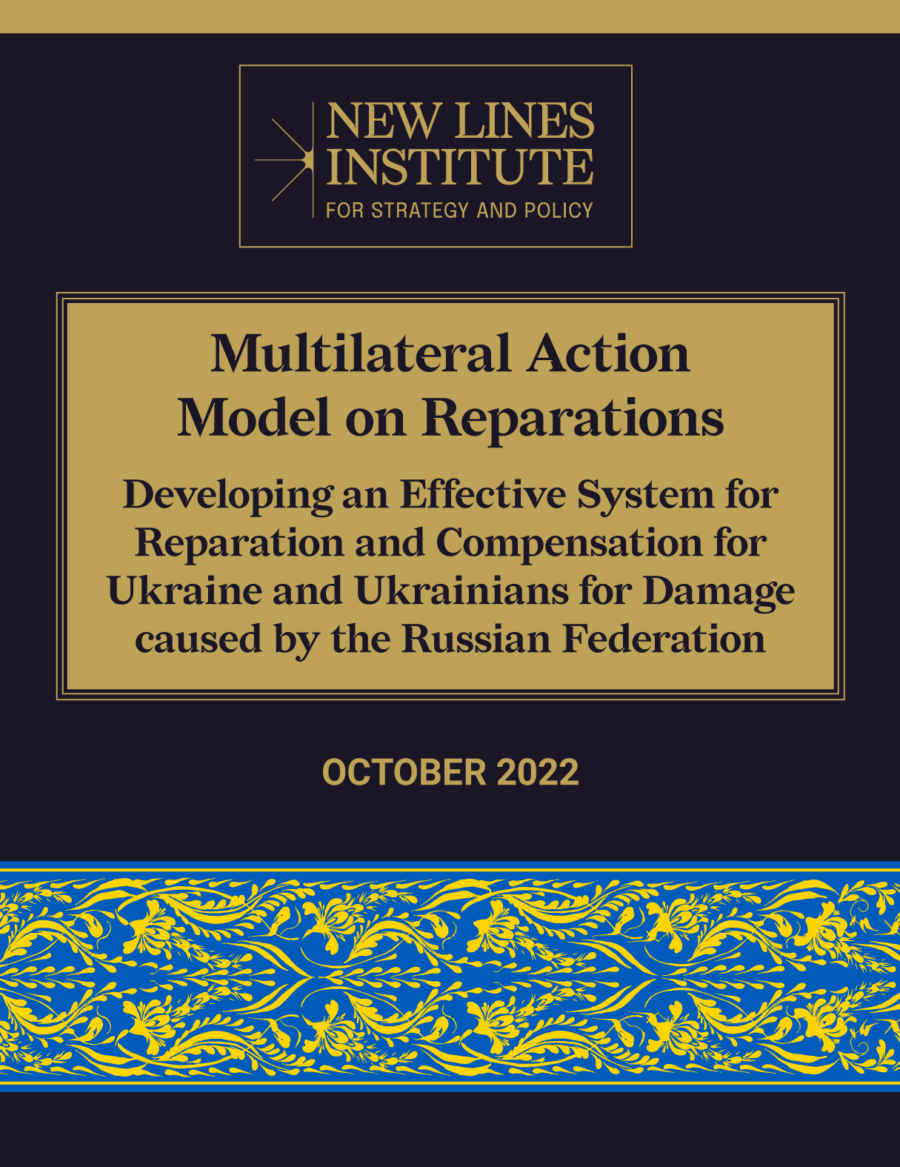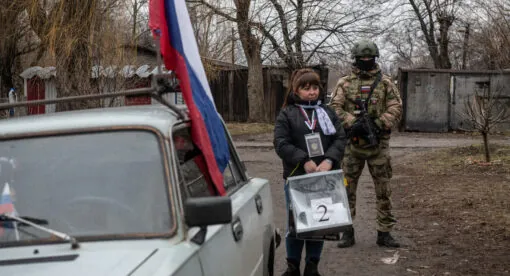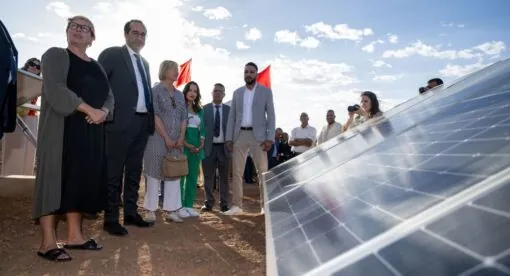Foreword
As Russia’s war against Ukraine continues, policymakers around the world have begun to consider the question of reparations. These will be necessary in compensating Ukraine for Russia’s invasion, and will be vital in the rebuilding of Ukraine’s economy and society.
The Multilateral Action Model on Reparations provides a legal process for the collection and distribution of reparations. It is an answer to that previously unresolved question. The model breaks new ground. It has to, because the war of aggression it is intended to compensate is unlike any other in Europe since 1945.
With Russia a member of the United Nations Security Council, a traditional model of reparations ordered by the U.N. would not pass the Russian U.N. veto. Instead, a new solution has to be devised.
The New Lines Institute convened a team of international legal experts, economists, and scholars to devise a new means of reparations.
Their analysis provides a roadmap for lawfully using Russian funds already frozen by the countries that have sanctioned Russia for its war — and provides a detailed, actionable list of possible sources of Russian state funds for use. It also establishes a functional, efficient means of collecting and distributing those funds, so that they might be used to rebuild Ukraine not in the distant future, but as the war continues.
In 13 Draft Conclusions backed by international law doctrine and practice, this model provides a practical, groundbreaking path to making use of seized and frozen Russian assets to compensate and rebuild Ukraine.
This report is focused on the necessary and immediate work of rebuilding Ukraine. But the model has wider applications. It is our hope that it will be used in future conflicts where traditional models of reparations fail, and that its successful use to assist Ukraine will make it another check on and disincentive for countries that would otherwise be willing to begin a war of aggression.
We believe the New Lines model will be a tool to help keep future peace, as well as one that can aid in Ukraine’s reconstruction.
-Dr. Azeem Ibrahim OBE, Director of Special Initiatives






